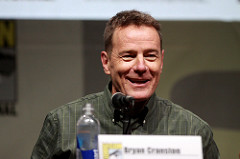Share This Article:
Return to Silver Screen Central Home page


Jack Black is only slightly less animated here than in Kung Fu Panda 3
BJust as many people consider American Chinese food to be comfort food rather than gourmet cuisine, Kung Fu Panda 3 is a comfort film rather than any sort of animated classic. It’s got lots of cartoon action, colorfully drawn characters, familiar voices, and just a touch of real emotion here and there. Put them all together, and you’ve got the perfect remedy for the January movie blahs.
As in the earlier Kung Fu Panda films, Jack Black returns in this latest sequel as the voice of Po, an awkward appearing panda who has become China’s greatest kung fu master. Despite his earlier martial arts success, Po is still unsure of himself and goes off with his biological father Li Shan (Bryan Cranston) to visit the legendary Secret Panda Village where he was born. However, trouble soon follows, in the form of Kai (J.K. Simmons), an angry bull who has returned to earth from the spirit realm intent on defeating all the other kung fu masters and becoming the greatest of them all.
In some ways, Kung Fu Panda 3 shows signs of an aging franchise, most noticeably in the by-now somewhat stale, fortune-cookie-level philosophy at the film’s core. However, the movie adds a few new elements, and, more important, elements based on the importance of family that will appeal to both young and old viewers. Instead of merely recycling more elaborate fight sequences, Kung Fu Panda 3 shows some imagination by having the panda villagers help Po fight off Kai and his cohorts with a delightfully oddball array of defensive maneuvers. Although most of the cast from the first two movies return, most notably Po’s teacher, Master Shifu (Dustin Hoffman), they take a back seat to the panda newcomers. The one returning character with a really significant role is perhaps the least heralded, Po’s adoptive father Ping (James Hong). The strength of Kung Fu Panda 3 is its animation, with incredibly detailed characters like Ping, who is an exceedingly gangly goose. The best drawn character of all, of course, is Po, who has both a look and mannerisms that channel Jack Black perfectly. Combine that charming animation with a family friendly message and broad genial humor, and the result is a sequel that proves surprisingly lively despite the familiar material.
Continue reading on Kung Fu Panda 3: Mini-review


Recent Comments